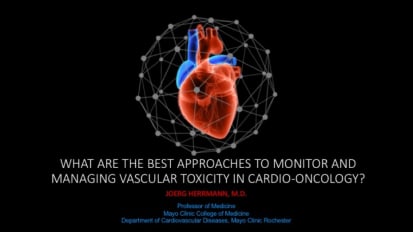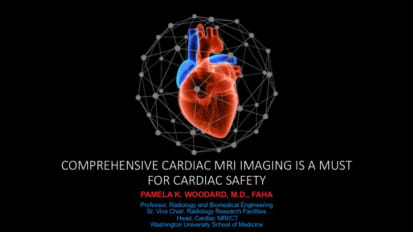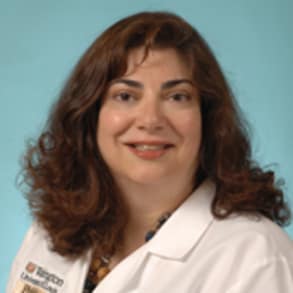Clinician’s Guide to Cardio-Oncology: Best Practice and Future Directions
Leveraging Big Data and the EHR to Better Inform the Practice of Cardio-Oncology
Washington University cardiologist at Barnes-Jewish Hospital, Joshua Mitchell, MD, discusses the continually expanding field of available cancer therapies.What are the Best Approaches to Monitor and Manage Vascular Toxicity in Cardio-Oncology?
Mayo Clinic cardiologist, Joerg Herrmann, MD, provides a review of the three main types of presentation of vascular toxicity seen with chemotherapy: acute vasospasm, acute thrombosis, and accelerated atherosclerosis.Comprehensive Cardiac MRI Therapy is a Must for Cardiac Safety
Washington University radiologist, Pamela Woodard, MD, presents an overview and update on how cardiac MRI can provide cardiac assessment and management of patients undergoing chemotherapy.








